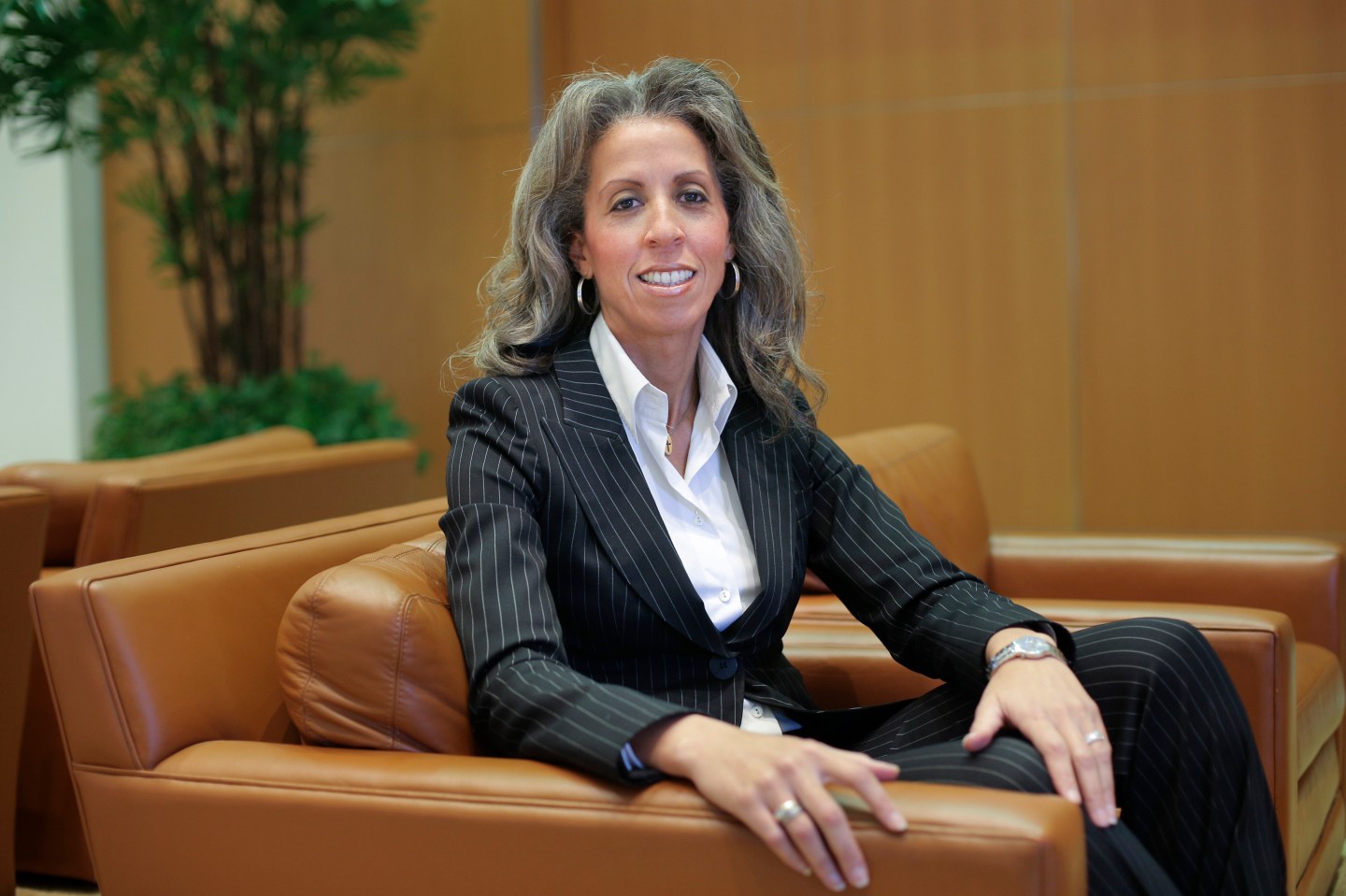MPW Insider is an online community where the biggest names in business and beyond answer timely career and leadership questions. Today’s answer for:How should every successful woman deal with rejection? is written by Lisa Lambert, vice president of Intel Capital.
Many professional women (myself included) grew up as academic achievers, accustomed to being rewarded for our efforts with opportunities for advancement. Success in school was predictable: study hard and get the “A.” But, unlike academic pursuits, doing great work and putting in the effort doesn’t guarantee success in the workplace. Career success is not binary. Competing priorities and political undercurrents are realities that aren’t always apparent or acknowledged. Your personal passions and priorities won’t necessarily be embraced by an organization with its own ideas about what work should get done and who should do it. Sooner or later, it’s inevitable…we all hear the word “no.”
Rejection of a proposal you’ve put time, effort, and passion into is deflating. You may be tempted to stay in your corner, do the work that’s in front of you, and go home. But, don’t let “no” keep you from taking a great idea to another level. Former Yahoo! CEO Carol Bartz once told me, “You’re going to get rejected from people who don’t agree with you. So, you need to find the people who do.”
As a managing director at Intel Capital my job is to discover, develop, and fund startups with the potential to deliver a return on Intel investments and align with our strategic priorities. It’s a great job, with one exception. More often than not, I’m the only woman in the room (much less the only woman of color). This bothers me not just because diversity is good for society and organizational health, but because it’s also a competitive advantage that makes ideas and companies better.
I saw a lot of synergy between my passion for advancing the careers of women I work with and funding exciting new businesses. So I developed a proposal for a professional network of female executives that would also serve as a way for Intel to scout talent and women-run startups. It was a thorough proposal, backed up by data and expected results. But despite my preparation, I wasn’t able to gain internal support for my idea.
Instead of giving up or continuing to attempt to persuade management within my own organization, I took a different path. I started my own professional development organization, UPWARD. I also tapped others within Intel to participate in UPWARD events and forums. I found there were a lot of people interested in accelerating the professional development of women. UPWARD became a magnet for fostering this like-minded community. I held luncheons, dinners, and even networking events, in order to raise awareness about UPWARD outside of my day job. It wasn’t the obvious path, and it certainly took a little longer. But in the end, it turned out to be the better option.
The pinnacle is that my path has now come full circle. In the coming weeks, Intel will announce details of a new fund focused on startups led by women and underrepresented minorities, and I will have the honor of leading this new fund. If I had packed away my proposal after that first rejection; if I didn’t find and leverage the power of a like-minded community, I wouldn’t have been tapped for this opportunity. The point is: don’t take adversity head on. Find power in a community of people who are on the same page. You may have to go and build that community–but the reward will be well worth the extra effort.
Read all answers to the MPW Insider question: How should every successful woman deal with rejection?
The most important business lesson I learned in my 20s by Barbara Dyer, president and CEO of The Hitachi Foundation.
How failure helped me start my own business by Maren Kate Donovan, CEO of Zirtual.
Why women need to stop holding back at work by Gloria Cordes Larson, president of Bentley University.
So you didn’t get the promotion. What’s next? by Debbie Messemer, managing partner at KPMG San Francisco.
Why even the best employees need to experience failure byPerry Yeatman, CEO of Perry Yeatman Global Partners.
You’ve made a mistake at work. Now what? by Stacia Pierce, CEO of Ultimate Lifestyle Enterprises.
How rejection made me a better employee (27 years later) by Liz Wiseman, president of Wiseman Group.
How to bounce back from rejection at work by Kathy Collins, CMO at H&R Block.
The upside of failure by Cathy Baron Tamraz, chairwoman and CEO of Business Wire.
3 steps to overcome rejection at work by Shiza Shahid, co-founder and ambassador of Malala Fund
How to avoid overreacting at work by Mary Civiello, president of Civiello Communications Group.
Why the best leaders are defined by their failures by Alyse Nelson, CEO and co-founder of Vital Voices Global Partnership.
5 stages of rejection (and how to deal) by Beth Fisher-Yoshida, director of Negotiation and Conflict Resolution Program at Columbia University.
Keep making mistakes at work? Here’s how to recover by Kathy Bloomgarden, CEO of Ruder Finn.
How to successfully deal with rejection at work by Beth Monaghan, principal and co-founder of InkHouse.
How to shake off rejection like Taylor Swift by Beth Comstock, senior vice president and CMO of General Electric.












